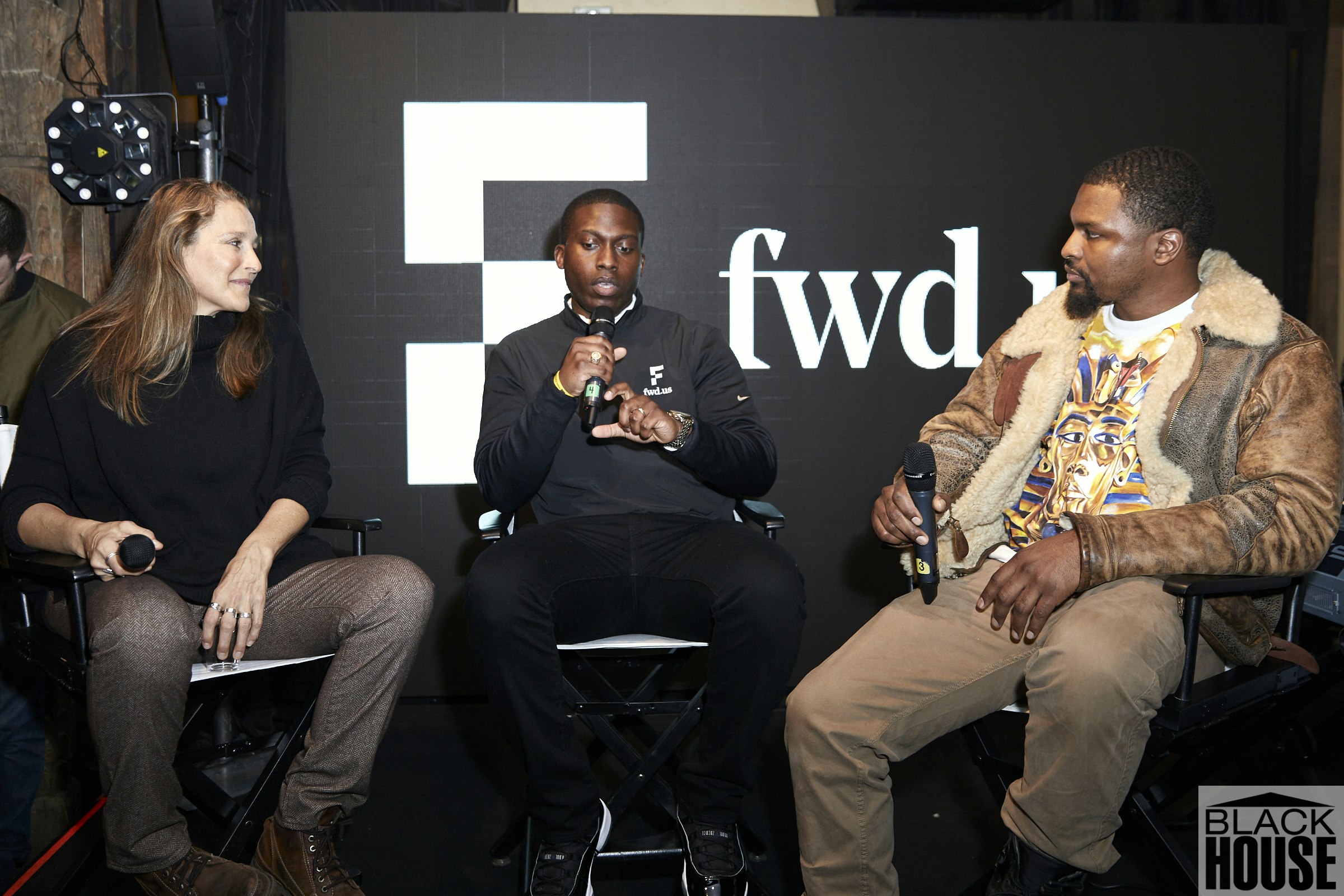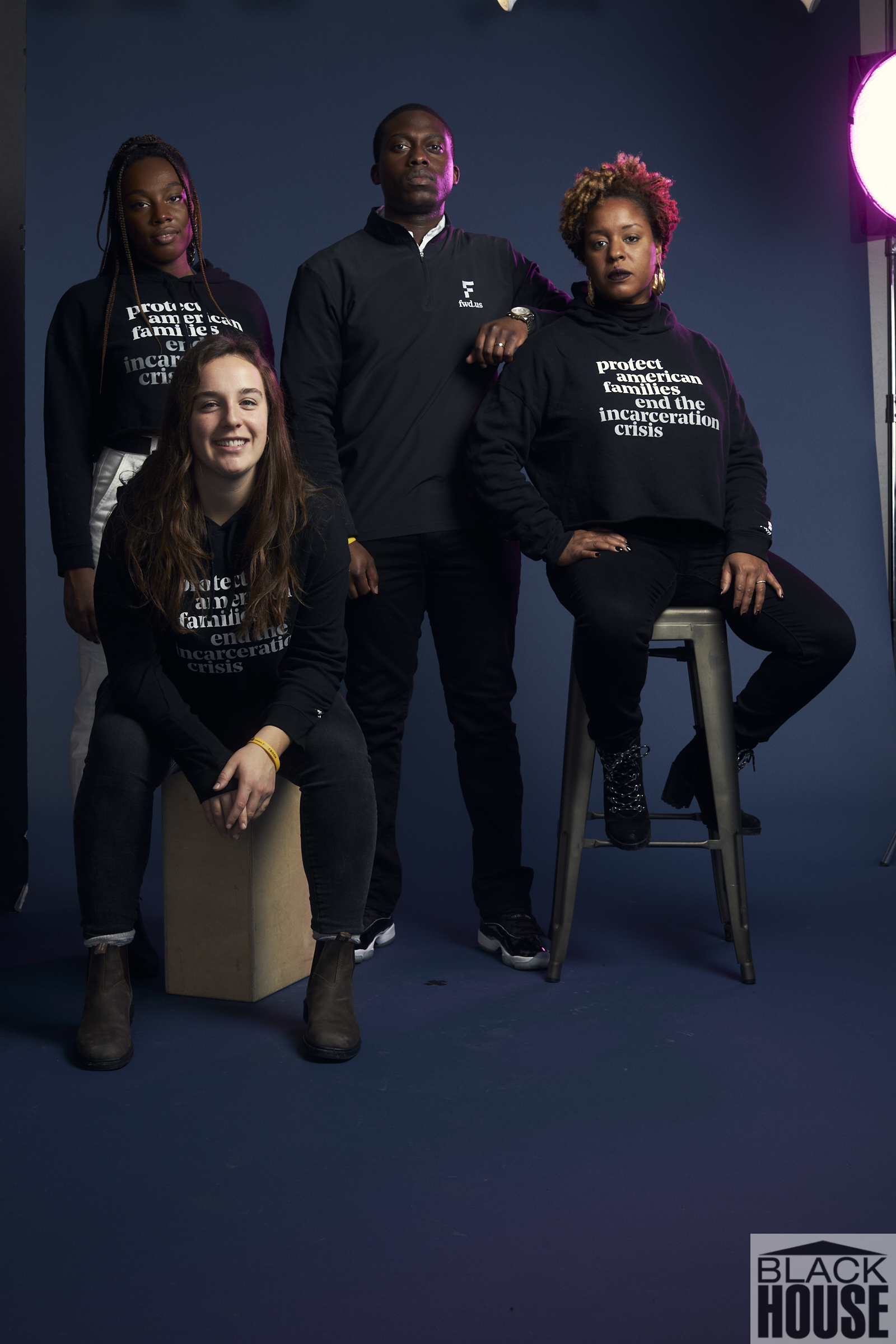Storytelling is an essential component to our criminal justice work at FWD.us which is why we partnered with the Blackhouse Foundation and headed to Sundance this year to amplify the issue of family incarceration. For 35 years, the world’s best storytellers have descended on Park City, Utah every January for the Sundance Film Festival to showcase their creative gifts to the world through film.
FWD.us partners with the Blackhouse Foundation for the 2020 Sundance Film Festival


History of The Blackhouse Foundation
In 2006, a group of Black artists and industry leaders established The Blackhouse Foundation, an organization that strives to highlight the work of Black writers, producers, directors, and executives, and to expand these creatives’ access to the film and television industry. Since its founding, The Blackhouse has excelled at promoting the work and advancing the careers of Black creatives who are telling stories that emerge from the Black experience and community. Many of the films launched at the Festival, eventually gaining critical recognition, often lift up stories that convey powerful life lessons and insights that may not have been told otherwise while reaching new audiences along the way.
Nearly one-third of Black adults have had an immediate family member incarcerated for more than one year, more than three times the rate of white adults
America’s incarceration crisis doesn’t just affect the individuals behind bars it tears families and children apart, destabilizes entire communities, and devastates and traumatizes millions of individuals across the country.
2020 Sundance Film Festival
On Saturday, January 25, FWD.us hosted a music lounge in collaboration with The Blackhouse Foundation during this year’s Sundance Film Festival. We wanted to utilize this unique opportunity to spark an important conversation with creatives in film and television about the many ways that harsh sentences are hurting America’s families, especially Black families, and to engage new voices in the fight to end America’s incarceration crisis.

Event guests enjoyed live performances and discussions from the producer and featured cast of the documentary film AGGIE, including Emmy-nominated director Catherine Gund, renowned composer and activist Samora Pinderhughes, playwright actor Liza Jessie Peterson, and visual artist Russell Craig. The documentary film AGGIE tells the story of art collector and philanthropist Agnes “Aggie” Gund, who sold her beloved Roy Lichtenstein “Masterpiece” painting to fund the nonprofit Art for Justice Fund.

While at Sundance, we also took the opportunity to chat with Emmy-nominated producer Zahra Rasool, Tamanika Evans, and Sister Eli of the film Still Here, an immersive installation featuring a fictional character who returns to her gentrified Harlem community after spending 15 years in prison. The installation is based on the visceral experiences of over twelve formerly incarcerated women who are part of the Women's Prison Association (WPA). Tamanika and Sister Eli spoke about the human toll the incarceration crisis has taken on them and their children. With more than 10 million kids having experienced parental incarceration in their lifetime, research makes clear that children of incarcerated parents are placed at an increased risk of health challenges that can hurt their wellbeing, including depression, hypertension, obesity, and diabetes – in addition to presenting a host of other threats to their ability to thrive in school and in their daily lives. To learn more about the installation and the stories of the women featured, visit https://stillhere.ajcontrast.com/.
Our experience at The Blackhouse during this year’s Sundance Film Festival was informative and uplifting! I believe that storytelling through film, television, and art is vital to growing the national movement to end America’s incarceration crisis. Storytelling is ingrained in our society — many of our contemporary customs and traditions were passed down from our ancestors through it. Stories provide us with shared values and lived experiences, and they reach beyond the data, statistics, numbers, and analytics to connect us to each other — evoking hope, sparking our imagination, driving conversation, and ignite movements.
More than 113 million Americans have directly experienced what it’s like to have a close loved one behind bars. Imagine if these millions of individuals began to courageously share their stories.
My hope is that we continue to use stories to inform people about the devastating impact of America’s incarceration crisis on families and communities, and inspire people to join the movement to protect our families and end the incarceration crisis.
Tell the world; share this article via...
Read related articles:
Get Involved
We need your help to move America forward. Learn what you can do.